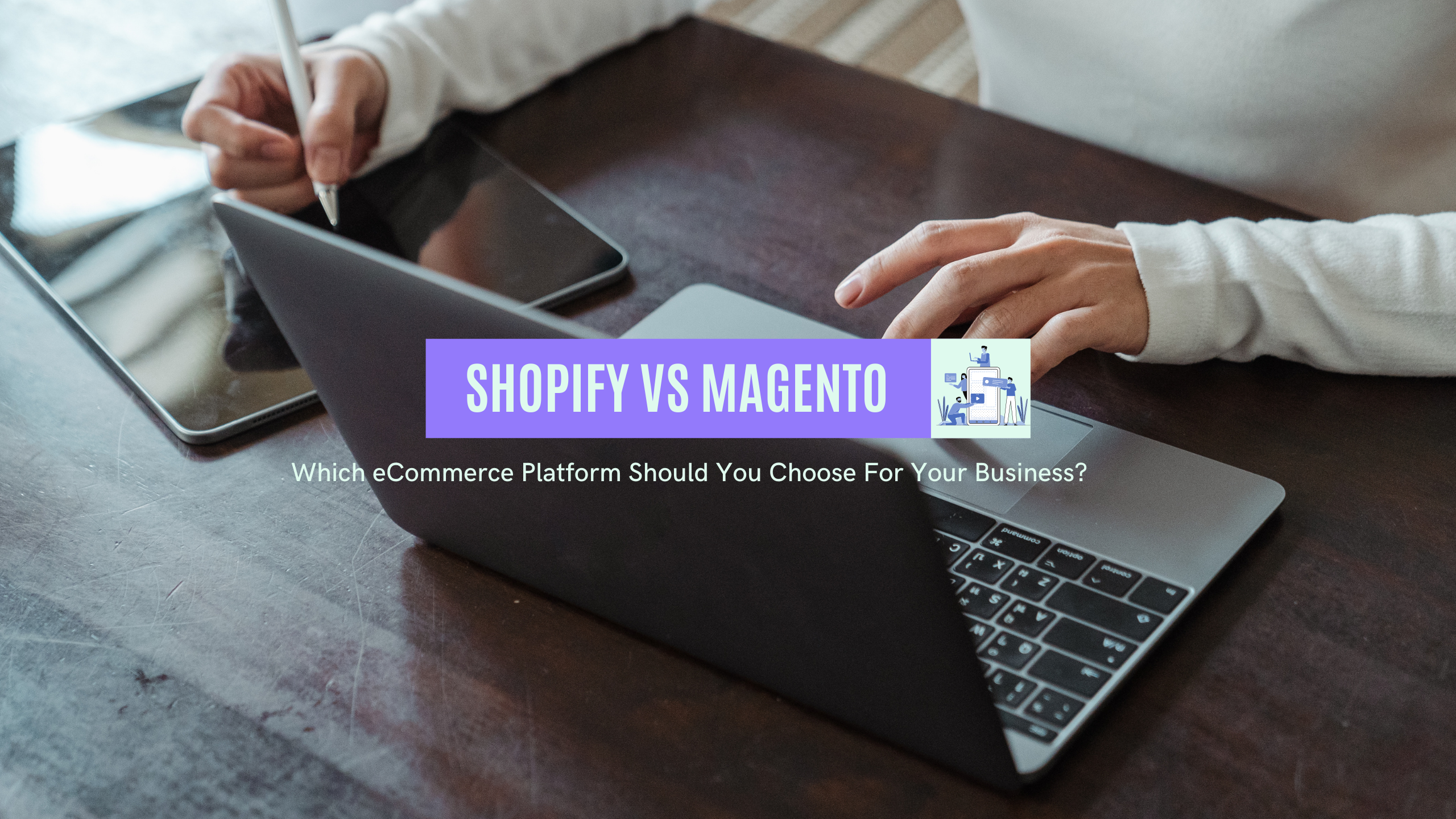In this modern world, consistently startup chooses eCommerce businesses (B2B, B2C, C2C) just, and it’s no big surprise why. While this is an unbelievable thought, the interaction frequently ends up being a shock with regards to picking the best eCommerce platform. All things considered, technology has given us numerous platforms with exclusive functions. Each Magento and Shopify web development company in India offers an inventive answer for business, all things considered. Shopify VS Magento: Which eCommerce Platform Should You Choose For Your Business?
Two of the top platforms – Magento and Shopify – are for the most part the reason for conversation. That is because both offer remarkable benefits, yet they likewise have huge loads of differences. That makes one more appropriate than the other in specific cases. Yet, how do eCommerce amateurs decide their appropriateness? It’s a cycle of a confounded interaction without a doubt, yet a careful exploration on Magento versus Shopify can assist with settling on an educated choice.
Let’s start.
The key difference between Magento and Shopify
What is Magento – Magento is an open-source platform written in PHP that can be installed in the system for free. It enables retailers to enjoy a flexible shopping cart system, full control over the appearance of the website, and content functionality to drive leads.
What is Shopify – Shopify is an eCommerce platform built on open source technology that allows retailers to build their virtual store and sell products online. For beginners who are not very knowledgeable about Shopify, it is one of the easiest solutions to do high-profile online business. Security, 24/7 Shopify customer support, customizability, and SEO friendliness are some of its top perks.
Read Also: Shopify Speed Optimization To Improve Performance of Your Website
Both Magento and Shopify are two of the most famous platforms in the world. In the past few years, they have gone through various updates making them the best solution for running an online business. But since a retailer might want to choose the most suitable option out of the two, we’ve outlined the detailed guide on Magento vs Shopify here.
- User Friendliness
Magento
Magento, probably Shopify’s greatest rival, is allowed to download for free and utilize. However, isn’t liable for organizing the server or web hosting. Magento developers need to enroll for the domain name and update the product on their side. Truth be told, a developer should be well informed to utilize the stage for eCommerce objectives.
While Magento eCommerce is bug-free and simple to set up, becoming acclimated to the Magento store is difficult. Its lofty expectation to learn and adapt just makes it useful and productive for proficient web engineers.
Shopify
Shopify is an easy-to-use, moderated platform, which means the process of hosting, web security, and software updates are all automatic. Shopify websites require less technical knowledge; hence, it is easy for a novice Shopify developer to carry out eCommerce activities.
Another benefit of using Shopify is that users can easily customize their store and how it looks by moving or dragging the items on the page. Plus, adding new products to the Shopify websites is a breeze for the users. By simplifying the dashboard, Shopify users can easily and securely handle every aspect of online marketing.
The Shopify Store development is quite simple and cost-effective as well that is why small businesses prefer Shopify web development services.
- Themes / Template
Magento
The matter is completely different with the Magento templates. Magento eCommerce only offers 15 pre-made themes (free and premium). The cost of premium Magento themes is $ 499. This is because the platform gives users the ability to create Magento themes from scratch. Many third-party developers create and sell Magento themes.
All in all, Magento eCommerce platforms offer several advantages when it comes to Magento templates and themes. This includes flexible customization, the ability to add animations, adding newsletters, and placing “cross-selling blocks” on the product pages.
Shopify
Themes play an important role in giving the audience a great experience. Shopify developers and retailers have access to 9 free and 64 premium templates. In fact, Shopify themes are less expensive as eCommerce owners only have to pay between $ 100 and $ 180 one time.
- Safety
Magento
In contrasted with Shopify VS Magento, the last requires its clients to adopt a more reasonable strategy to consenting to PCI guidelines. Similar to Shopify, Magento also releases patches and updates on a daily basis, but it is the responsibility of the development team to improve the security of the website.
Shopify
Security is the key to successful eCommerce marketing. Shopify is the best solution in this regard as it complies with PCI standards and offers SSL encryption to protect customers’ confidential data.
Running the Shopify websites or the Shopify affiliate program gives you the peace of mind you need. That’s because Shopify regularly releases patches and updates to protect its users from hacker attacks. Shopify eCommerce development India ensures optimum security for a better experience for both Admin and customers.
Conclusion
If you want to take your business online and looking for the best solution then both Magento and Shopify are good. Moreover, Shopify is best for those who are non-technical as it allows you to build an online store and sell your products with ease. If you want to integrate some advanced functionalities into it then you can hire Shopify Development Company in India.
Categories: Shopify

